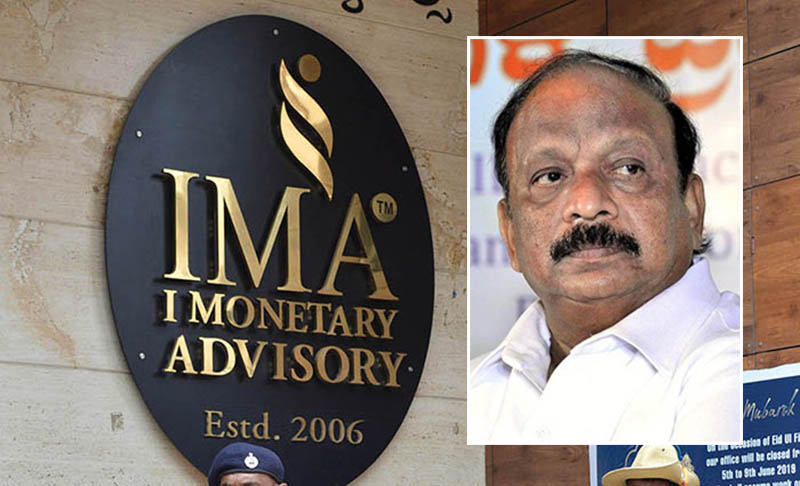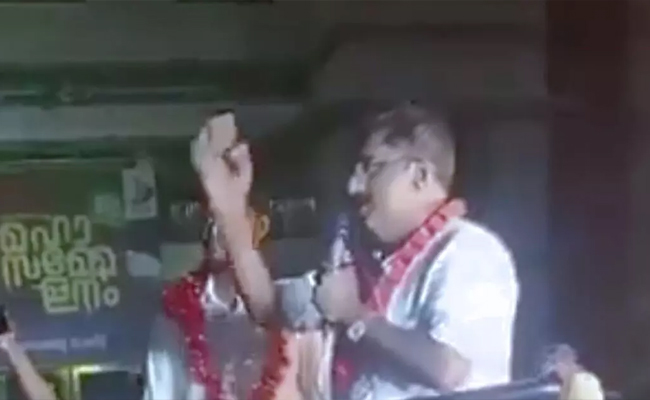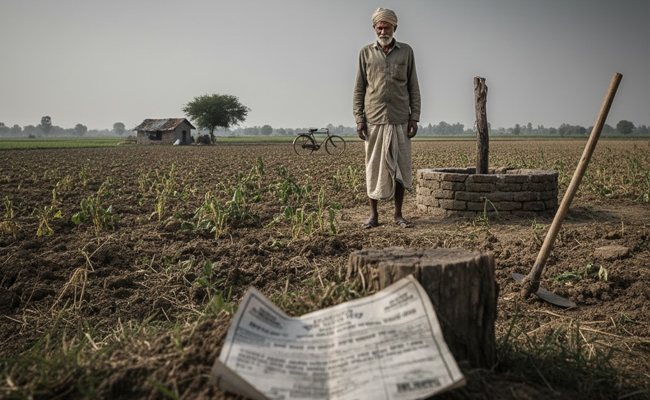New Delhi, Apr 27: The CBI filed a supplementary charge sheet against former Karnataka minister Roshan Baig on Tuesday in connection with the Rs 4000-crore I-Monetary Advisor (IMA) ponzi scam case, officials said.
In its charge sheet filed before a special CBI court in Bengaluru, the central agency has also named the then MD of IMA Group Mansoor Khan, the company, Baig's company Daanish Publications and others.
"It was alleged that the accused former minister received several crores of rupees from IMA funds for election expenditure. It was further alleged that the accused was also utilising the said funds for day-to-day expenditure, including salaries of employees of his firm. It was also alleged that the accused has spent the funds for various social and cultural activities in his constituency to increase his popularity," CBI spokesperson R C Joshi said in a statement.
The IMA scam pertains to over Rs 4,000 crore collected by IMA Group from over a lakh gullible investors in the name of providing attractive returns on investment following Islamic ways.
The Central Bureau of Investigation (CBI) has alleged that the money was diverted to Baig, a minister in the erstwhile Congress government led by Siddaramaiah, so that the IMA Group could continue its illegal activities, officials said.
The CBI had registered four cases in connection with the scam and earlier filed three charge sheets and three supplementary charge sheets against 33 accused, including Khan, company directors, several revenue and police officials.
"It was alleged that the said Group had raised unauthorised deposits & cheated the public by failing to repay the principal and as well as the promised returns. These funds were allegedly diverted for acquiring properties, paying bribe amounts, etc. Several properties, including moveable & immovable, were identified and attached under KPIDFE (Karnataka Protection of Interest of Depositors in Financial Establishments) Act, 2004 by the competent authority," Joshi said.
Let the Truth be known. If you read VB and like VB, please be a VB Supporter and Help us deliver the Truth to one and all.
Mangaluru: Intensifying action against drug peddling, Mangaluru City police arrested 25 people and registered 12 cases under the Narcotic Drugs and Psychotropic Substances (NDPS) Act between November 30 and December 13. During the operation, police seized 685.6 grams of MDMA and 1.5 kg of Ganja, The Times of India reported.
City police commissioner Sudheer Kumar Reddy reportedly said, the QR code based anonymous reporting system, introduced to enable citizens and students to discreetly share information on drug-related activities, has received an encouraging response. Several recent arrests were made based on inputs received through this system, helping police tighten the noose around drug peddlers.
ALSO READ: "Women are only for sleeping with husbands”: CPI(M) leader’s victory speech sparks outrage
According to the report, so far this year, up to December 14, police have registered 107 drug peddling cases and arrested 219 accused. In addition, 562 cases were booked for drug consumption, leading to the arrest of 671 people.
During raids conducted this year, police allegedly seized large quantities of narcotics, including ganja worth Rs 88.7 lakh, MDMA valued at Rs 1.2 crore, and MDMA pills worth Rs 87,000. Other raids include charas worth Rs 1.7 lakh, hydro-weed ganja worth Rs 94.7 lakh, methamphetamine worth Rs 50,000, bhang chocolates worth Rs 6,800, cocaine worth Rs 1.9 lakh, and opium worth Rs 9,000.
In 2024, police arrested 160 peddlers in 88 cases, in addition to booking 1,026 cases for consumption and arresting 1,244 persons. In 2023, the police arrested 199 peddlers in 94 cases and booked 619 cases for consumption and arrested 749 persons.
"We ensure that peddlers are caught red-handed so that they cannot later dispute the case or claim innocence," TOI quoted commissioner Reddy as saying.
To curb drug use among students, police also introduced random drug testing in colleges. Around 100 educational institutions were covered in the first phase, where nearly 6,000 students were screened. As per the report, about 20 students tested positive and were counselled. They will undergo follow-up tests in the next phase.
Reiterating a zero-tolerance policy, the commissioner reportedly said random testing would continue and colleges have also been directed to conduct drug tests at the time of admission to deter substance abuse at an early stage.





